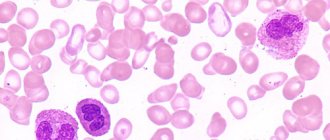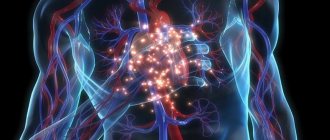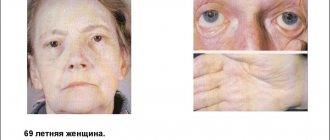A feeling of weakness or loss of strength, malaise is one of the most common conditions that most people in our world experience. Sometimes a person feels weakness in the legs, arms and other parts of the body, but there are times when the malaise is accompanied by symptoms such as fever, drowsiness, aches, dizziness, nausea, etc. So what does weakness mean to a person and what to do if a person literally does not have the strength to carry out his daily tasks, we will talk about all this and other related issues in today’s article. So…
Vitamin B12 deficiency
This vitamin helps your body's nerve cells and red blood cells function. The latter, in turn, are involved in transporting oxygen to the tissues, without which the body cannot process nutrients into the energy it needs. Hence the weakness due to B12 deficiency. This condition can be identified by other signs: for example, it is very often accompanied by diarrhea, and sometimes by numbness of the fingers and toes and memory problems.
What to do. Vitamin deficiency is detected by a simple blood test.
If it shows a positive result, you will most likely be advised to eat more meat, fish, dairy products and eggs. The vitamin is also available in medicinal form, but is poorly absorbed and is usually prescribed only in extreme cases.
Weakness - reasons
The main causes of weakness are:
- Improper nutrition - when a person, along with food, does not receive all the necessary substances to maintain his body in “full combat readiness” - vitamins, minerals, carbohydrates (hypovitaminosis, avitaminosis);
- Eating baked goods is a type of food that contains simple carbohydrates and promotes the release of insulin (hormone), which in turn leads not only to weight gain, but also to feelings of weakness. By the way, some people have an individual intolerance to wheat or gluten, so if they consume products made from these ingredients, a person may feel dizzy and drowsy.
- Increased physical and mental activity;
- Lack of proper rest, especially if a person does not get enough sleep;
- Strong emotional experiences, stress, fears, depression;
- Sedentary lifestyle (hypodynamia);
- Dehydration (dehydration), especially during increased physical activity or when working under the influence of high ambient temperatures;
- Bad habits – alcoholism, smoking, drugs;
- The presence in the body of a pathogenic infection (viruses, bacteria, fungi), as well as helminthic infestations;
- Side effects of certain medications - sedatives (sedatives), tranquilizers, antidepressants, antipsychotics, muscle relaxants, antihistamines, blood pressure lowerers and others;
- Chronic fatigue syndrome;
- Various diseases: anemia, hypothyroidism, diabetes mellitus, tuberculosis, hepatitis, liver cirrhosis, allergies, bronchial asthma, vegetative-vascular dystonia (VSD), neurosis, dermatoses, atherosclerosis, coronary heart disease (CHD), pericarditis, myocarditis, malignant diseases ( cancer), HIV infection, osteochondrosis, scoliosis, kyphosis, lordosis, diseases of the nervous system, autoimmune diseases.
- Poisoning – food, chemical compounds, metals;
- Pathological conditions – sunstroke, heatstroke;
- Unfavorable environmental conditions for the body - heat, weather changes, increased atmospheric pressure, magnetic storms, insufficient oxygen, polluted air;
- Acute blood loss;
- Weakness in women can be due to menstruation, pregnancy;
- Spiritual component - some people may feel constant weakness due to the influence of any unfavorable spiritual substances on them, therefore, a frequent solution for such people is turning to God, repentance, confession, communion, prayers, fasting.
Vitamin D deficiency
This vitamin is unique because it is produced independently by our body. True, for this you need to spend at least 20-30 minutes in the sun every day, and the latest criticism of tanning enthusiasts does not help this at all. The press is full of warnings that sunbathing can lead to premature aging, age spots and cancer. This is partly true, of course, but excessive caution is no less dangerous to health. Vitamin D deficiency, doctors warn, can result in heart problems, high blood pressure, neurological disorders and some types of cancer.
What to do. Vitamin D levels are also checked with a blood test.
You can replenish it with a fish diet, eggs and liver. But sunbathing is also necessary. 10 minutes in the fresh air a day will be enough to get rid of fatigue.
Treatment of weakness with folk remedies
Important!
Before using folk remedies against weakness, consult your doctor! Birch juice. Daily intake of fresh birch sap in the amount of 1 glass 3 times a day will fill the body with a good amount of vitamins and microelements, fluid, help cleanse itself of slagging, and also give a charge of vigor and strength.
Fish fat. This wonderful product cleanses the circulatory system of “bad” cholesterol, prevents the development of cardiovascular diseases, and gives strength to the body. Take 2-3 teaspoons of fish oil 20 minutes before meals 3 times a day.
Linden or verbena tea. Drink tea based on linden or verbena officinalis 2-3 times a day, sweetening the taste with dandelion jam.
Icelandic moss. Pour 2 teaspoons of Icelandic moss into 500 ml of cold water, then put this mixture on the fire and bring it to a boil. Next, the product should be set aside to infuse for an hour, so that the broth cools, strain it and drink several times during the day.
Wine, aloe and honey. Mix together 150 ml of adult aloe juice, 250 g of May honey and 350 ml of red wine (for example, Cahors). Then set the container with the mixture in a dark and cool place for a week to infuse. The resulting infusion is taken in case of loss of strength, 1 tbsp. spoon, 3 times a day, 20 minutes before meals.
Celery. Pour 2 tbsp. spoons of chopped celery roots 200 ml of water. Leave the product for 2 hours to infuse. Drink the resulting infusion several times throughout the day, preferably 15-20 minutes before meals. By the way, the product also helps with dermatitis, urticaria, cystitis, pyelonephritis, and gout.
Rose hip. Rosehip is an excellent source of vitamin C, which stimulates the immune system, which has a beneficial effect in the treatment of infectious diseases that usually cause loss of strength. To prepare this product, pour 2 tbsp. spoons of crushed rose hips 500 ml of water, put the product on low heat and cook it for 15 minutes. Then leave the product to infuse overnight, wrapping the vessel so that the broth is well brewed. Strain in the morning and drink throughout the day as tea, perhaps with the addition of natural honey. It will be good if you refuse food that is rough and difficult for the stomach on this day.
Taking medications
Read the package insert for the medicine you are taking. Possibly side effects include fatigue, apathy, and weakness. However, some of you have this information. For example, antihistamines (used for allergies) can literally drain your energy, although you won't read it on the label. Many antidepressants and beta blockers (hypertension medications) have a similar effect.
What to do. Each person reacts to medications differently. The form and even the brand of the drug may matter. Ask your doctor to find another one for you - maybe changing pills will get you back into shape.
Diagnostics
The primary examination is carried out by a general practitioner. The initial diagnostic stage consists of a detailed collection of all complaints, a history of the development of the disease, on the basis of which the presence of a certain pathology or risk factor is assumed. Then, based on the complaints, special laboratory and instrumental methods are prescribed that make it possible to confirm the probable causes of weakness. The most informative ones are:
- Neurological examination
. To study the functioning of the nervous system, cognitive functions are examined, and the time of occurrence of dermographism is measured. Specific tests (orthostatic and Danini-Aschner) reveal discoordination of sympathetic and parasympathetic regulation. The functional activity of the brain is clarified using EEG. - Blood tests
. A general blood test determines leukocytosis, hemoglobin and red blood cell levels. A biochemical study is carried out to assess liver function, detect signs of inflammation or residual electrolyte disturbances. The content of free T3 and T4 in the blood must be taken into account, and a fasting glucose test is done. - Coprogram
. If weakness occurs after symptoms of poisoning, it is necessary to do a microscopic examination of the stool and culture the material on nutrient media to detect pathogenic microorganisms. In case of prolonged dyspepsia for no apparent reason and malabsorption syndrome, stool is examined for the level of fecal elastase and specific antigen H. pylori. - Ultrasound examination
. If there are complaints from the digestive system, a survey ultrasound of the abdominal organs and retroperitoneal space is performed. In women, the pelvic organs are additionally visualized. If there are signs of a pathological process, more informative examinations are recommended - endoscopy, radiography of the intestine using a contrast agent. - ECG
. In middle-aged and elderly patients, an electrocardiogram must be recorded in standard leads and with a load. For a detailed examination of the heart, 24-hour Holter monitoring is effective. To examine the anatomical features of the heart and identify signs of valve damage, echocardiography with vascular Dopplerography is performed. - Additional methods
. To study the respiratory system, a chest x-ray is taken. Spirography helps to assess the function of external respiration. If weakness is caused by a lack of thyroid hormones, scintigraphy of the thyroid gland with iodine is indicated to diagnose organic damage. MRI and CT scan of the brain will help rule out inflammation and degenerative changes.
Malfunction of the thyroid gland
Thyroid problems can also include changes in weight (especially difficulty losing weight), dry skin, chills, and menstrual irregularities. These are typical signs of hypothyroidism - an underactive thyroid gland, due to which the body lacks metabolism-regulating hormones. In an advanced state, the disease can lead to joint diseases, heart disease and infertility. 80% of patients are women.
What to do. Go to an endocrinologist and decide how intensive treatment you need. As a rule, patients have to remain on hormone replacement therapy for the rest of their lives, although the results justify the costs.
Chronic fatigue syndrome
Chronic fatigue syndrome is a chronic condition characterized by extreme fatigue that lasts more than six months and is difficult to diagnose.
Symptoms of CFS are:
- joint pain that moves from one place to another;
- muscle pain;
- poor concentration;
- memory loss;
- enlarged lymph nodes;
- headache;
- chills;
- high sweating;
- digestive disorders (eg, irritable bowel syndrome);
- insomnia;
- psychological disorders;
- decreased immunity.
The list of signs of chronic fatigue syndrome does not end here.
As a rule, chronic fatigue affects people aged 25 to 45 years, as well as teenagers experiencing stress due to worries on the eve of exams. At risk are people who experience frequent stress in the professional and personal spheres.
Chronic fatigue syndrome is also called white collar disease.
The feeling of stuffiness and lack of air is another problem for residents of large cities and is often the cause of weakness, loss of strength and the development of chronic fatigue syndrome.
Do you often open windows to ventilate the room where you work or live? Usually, even after thorough ventilation, after a couple of hours, the CO2 concentration returns to its previous value, and we can again experience all the delights of stuffiness and lack of air.
Keeping the windows constantly open would be an ideal solution, but due to unfavorable weather conditions and poor ecology, we cannot do this.
Breezer is a compact supply ventilation with air purification. The device will help those who want to breathe fresh and clean air. The breather ventilates the room with the windows closed, purifies the air from harmful impurities and dust.
Treatment of chronic fatigue syndrome
As a rule, chronic fatigue syndrome manifests itself as a complex of symptoms. If even after a good rest the signs of chronic fatigue do not go away: you feel a loss of strength, weakness in the body, weakness, then in order to avoid complications you need to urgently consult a doctor.
There is a possibility that the therapist will not be able to prescribe the necessary treatment due to a large list of symptoms adjacent to signs of other diseases. The final diagnosis and, possibly, treatment will be made by a specialist after a complete examination of the patient.
The following can help cope with chronic fatigue syndrome:
- psychologist.
If the illness is associated with constant stress, worry and anxiety, a psychologist or psychotherapist will help cope with emotional overload; - neurologist
- if the syndrome is caused by overstrain of the nervous system; - endocrinologist
If fatigue is associated with disturbances in the endocrine system or hormonal imbalance, the endocrinologist will refer you for a more detailed examination; - immunologist
Weak immunity, frequent colds and exacerbations of chronic diseases can also take away vitality.
Intestinal problems
Celiac disease, or celiac disease, affects approximately 1 in 133 people. It lies in the inability of the intestines to digest the gluten of cereals, that is, as soon as you sit on pizza, cookies, pasta or bread for a week, bloating, diarrhea, discomfort in the joints and constant fatigue begin. The body reacts to a lack of nutrients that it cannot receive due to the intestines’ inability to absorb them.
What to do. First, undergo several tests to make sure that the problem is really in the intestines. In some cases, endoscopic examination is required to confirm the diagnosis. If the answer is yes, you will have to seriously reconsider your diet.
How to overcome fatigue?
When the body is faced with oxygen starvation, which occurs due to impaired blood circulation and metabolism, we feel powerless. Feeling dizzy, experiencing pain in the temples, and decreased concentration and productivity. If this happens, consult a doctor immediately. As they say, take care of your health from a young age, and they say it right.
But if we are not talking about pathological changes in the body, but about a functional disorder, then here are some tips on how to cope with fatigue and feel cheerful for the whole day.
- Sleep at least 7–9 hours a day.
Try to accustom yourself to the correct daily routine: go to bed and wake up at the same time every day. Remember, healthy sleep is the key to feeling great. During sleep, our body recovers and gains strength. - Cool shower.
Water procedures in the morning can both invigorate and normalize the functioning of the cardiovascular system. - Evening exercise.
Taking a walk before bed is very beneficial, especially if you spent most of the day sitting. - Fitness.
You can exercise even at home; you don’t have to visit a gym or pay for the services of a personal trainer. Regular 15-minute warm-up in the morning or throughout the day improves blood circulation and restores vascular tone. - Rejection of bad habits.
Alcohol and smoking often cause serious disorders in the body, at a minimum they cause vasospasm and poor health - Healthy diet.
Overeating and addiction to fast food can also be classified as bad habits. To avoid problems with excess weight, start eating right. Eat more vitamins and other useful microelements. - Phytotherapy.
If your work involves regular stress and severe overwork, there is nothing wrong with drinking soothing or tonic infusions or teas made from chamomile, lemon balm, mint, valerian, rose hips, ginseng, strawberries, etc. This habit will help strengthen the immune system and, perhaps cope with nervous overload.
Heart problems
About 70% of women who have had a heart attack complain of sudden and prolonged attacks of weakness and constant fatigue that precede the heart attack. And although the heart attack itself is not so painful for the fair half of humanity, the percentage of deaths among women is constantly growing.
What to do. If you have other symptoms of heart problems - loss of appetite, difficulty breathing, rare but sharp chest pain - it is better to consult a cardiologist. You may need an electrocardiogram (ECG), echocardiogram, or ultrasound examination of the heart. Treatment depends on the results. To prevent heart disease, you can change your diet to a low-fat diet and do light exercise.
Treatment of weakness
Short periods of weakness can be eliminated with some simple tips. If a person feels constant weakness, this is a reason to consult a doctor, because... Treatment in this case will be aimed at eliminating the root cause of this condition.
Weakness - what to do? General recommendations
1. Normalize your diet - carbohydrates, vitamins and macro-microelements are the source of strength.
If you don’t eat anything in the morning, then the likelihood of difficulties in performing heavy physical or mental work is quite high. 2. Follow a routine: work/rest/sleep, get enough sleep. Scientists have found that the body gains strength most effectively if a person goes to bed no later than 22:00. Avoid overwork, working 24/7 along with money has brought many people a bunch of illnesses, for which the money earned through such hard work is not always enough.
Read also: How homeopathy helps the body overcome diseases
3. If you work a lot, it would be a good idea to take additional vitamin and mineral complexes. Additional intake of vitamins and microelements can also help in case of psychological weakness, when the cause of general malaise is stress, despondency, depression and other psychological disorders.
4. Move more, do morning exercises. The less a person moves, the weaker his muscle corset becomes, which over time leads to constant weakness in the muscles. At the same time, it becomes more difficult for a person to even simply move on his feet. In addition, with constant sedentary work, a person’s blood circulation in the hip part of the body and legs slows down, the nutrition of the legs is disrupted, weakness in the legs is felt, and sometimes numbness. The more actively you move during the day, the better your blood circulation will be, the more “in shape” you will feel.
5. If you are exhausted by any irritating factor, for example, your place of work, watching the news, computer games, remove this factor from your life or change your attitude towards it.
6. Ventilate the room in which you spend a lot of time. Yes, lack of oxygen can cause not only weakness, but also dizziness.
7. Drink at least 2 liters of water per day. Dehydration can occur even in the absence of heat. The presence of frequent weakness and dizziness may also indicate a lack of water in the body. On average, a person consists of 70% water, therefore, the normal functioning of all organs and systems is possible only if the necessary water balance is maintained in the body.
8. In case of food poisoning, take a sorbent (“Activated carbon”, “Atoxil”, “Enterosgel”) and drink more fluids.
9. Weakness in women during menstruation is caused not only by changes in hormonal levels, but also by blood loss. Weakness in men can also be caused by acute blood loss. To improve your well-being in such situations, eating pomegranate and juices (apple-carrot, beetroot) will help.
Treating weakness with medications
Important! Before using medications, be sure to consult a doctor!
Acute blood loss (due to injuries or menstruation) may include the use of iron-based medications - Ferbitol, Gemostimulin, Ferroplex.
For nervous disorders, neuroses, PMS - Grandaxin.
For depressive states and feelings of anxiety - “Tenoten”.
For increased irritability, fatigue, to relieve aggression - “Glycine”.
For general strengthening of the body, stimulation of mental and physical activity, normalization of metabolic processes - vitamin and mineral complexes “Supradin”, “Vitrum”.
Diabetes
This insidious disease has two ways of wearing you down. First: when a patient's blood sugar level is too high, glucose (that is, potential energy) is literally washed out of the body and goes to waste. It turns out that the more you eat, the worse you will feel. By the way, the state of constantly elevated blood sugar has its own name - potential diabetes or prediabetes. This is not yet a disease, but it manifests itself in the same way in persistent fatigue.
The second problem is strong thirst: the patient drinks a lot, and because of this he gets up several times a night “out of need” - what kind of healthy sleep is that?
What to do. Other symptoms of diabetes include increased urination, increased appetite, and weight loss. If you suspect you have this disease, the best way to check your suspicions is to get your blood tested. If you have diabetes, you will have to follow a diet, regularly check your blood sugar, take medications, and possibly exercise. If you are diagnosed with prediabetes, losing weight and increasing physical activity can prevent the condition from getting worse.
Weakness - general information
General weakness - a feeling of insufficient strength (loss of strength), energy necessary to complete daily tasks without any difficulty.
A marker for identifying weakness is the need to make additional efforts to perform certain actions that a person normally performs without much difficulty.
Weakness can be roughly divided into three types - physiological, pathological and psychological.
Physiological weakness - a person feels tired after physical or mental work, lack of daytime or proper night rest.
Pathological weakness - a person feels tired in the presence of any diseases, or during the recovery period after them, when most of the body’s forces are mobilized to fight the pathology. In this case, the feeling of weakness must be considered as a symptom.
Psychological weakness - a person feels weak due to lack of confidence in his abilities necessary to solve a particular problem. For example, some people are so afraid of being tested at work that fear and stress literally exhaust them, and the more a person worries and is nervous, the less strength he has left.
Other diseases
The causes of weakness and drowsiness can be the consequences of many diseases - both physical and mental, which lead to exhaustion of the body. Therefore, if such symptoms appear, it is recommended to visit a doctor who can prescribe the necessary tests, accurately determine the cause of the disease and offer the necessary treatment.
Under no circumstances should you try to combat drowsiness on your own, especially with coffee and other energy drinks, as this can aggravate the problem.
Signs of oncological processes
Constant weakness in cancer patients is their natural state; over time, they even get used to it and do not notice their weakened state. Weakness is caused by intoxication of the body, because a growing tumor releases toxic products of its vital activity into the surrounding tissues and vessels. Moreover, the malaise manifests itself in other signs. In the early stages of tumor development, a person may notice slight pain, and when the tumor has already formed, the site of its localization often hurts significantly. In addition, the sick person loses his appetite, and his weight begins to decrease. The worst thing is when the appetite is normal and the person eats normally, but the weight is still melting before our eyes - this means that metabolic processes are disrupted. One of the early signs of oncology is an unreasonable increase in body temperature for no apparent reason. In fact, the reason is that the tumor suppresses the immune system, which responds in this way. The patient may feel increased sweating and often breaks into a cold sweat.
The nails, hair and skin react to the tumor growing in the body. For example, with a tumor of the thyroid gland, severe hair loss occurs and nails become brittle. When the liver is damaged, the skin turns yellow; if the disease is localized in the adrenal glands, the skin darkens.
Classification of ailments accepted in medical theory
Depending on the mechanism of development and manifestation of the condition, it is classified into the following types:
- generalized weakness that develops and progresses slowly;
- acute and rapidly progressing condition;
- recurrent and intermittent general weakness.
The nature of the formation and development of illness is a factor that plays an important role in determining the causes of illness. So, for example, the first type of condition is typical for:
- sarcoidosis;
- myopathies;
- connective tissue diseases;
- intoxication;
- oncological processes;
- metabolic disorders;
- endocrinopathies;
- psychogenic weakness;
- general somatic diseases with and without damage to the neuromuscular system.
An acute condition with sharp progression can develop with myopathy, lesions of the nervous system such as polio, and also with psychogenic weakness.
The last type of pathological condition occurs in diseases of the central nervous system and neuromuscular lesions (myasthenia gravis, periodic paralysis).
Possible complications
If a condition such as general malaise is ignored, various types of complications may arise. It all depends on whether general weakness is an independent disease or a secondary form of the underlying disease. In the first case, the outcome is positive. In the second case, it will lead to progression of the underlying disease.
Weakness in the body is more common in women than in men. This is due to physiological blood loss, unstable hormonal levels, hence emotional stress, sudden changes in blood pressure.
For such reasons, the female body’s inadequate response to the environment expends more energy than the body of a healthy person and is subject to rapid energy depletion. Consultation with your doctor, an active lifestyle and elimination of the irritating factor will improve the overall clinical picture.











